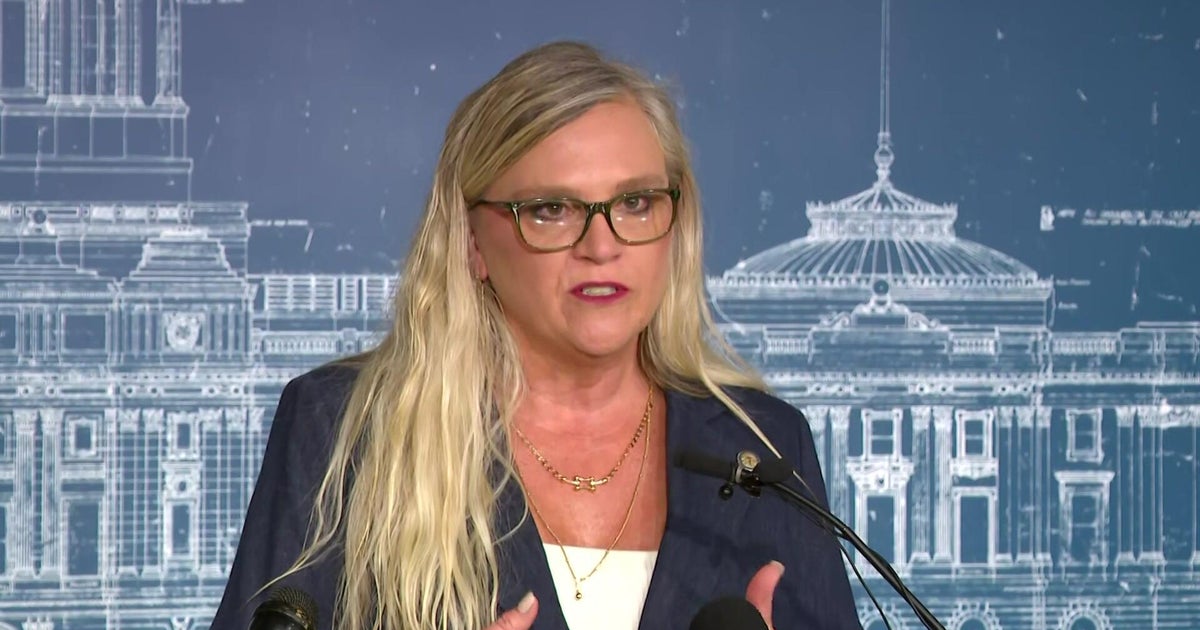U.S. moves to reshape and speed up asylum processing along the southern border
The Biden administration on Wednesday said it intends to reshape and speed up asylum processing along the southern border, publishing a proposed rule that would allow asylum officers, rather than the backlogged immigration courts, to adjudicate requests for U.S. humanitarian protection.
Under the new plan, asylum-seekers placed in expedited deportation proceedings would have their cases heard by U.S. Citizenship and Immigration Services (USCIS) asylum officers if they establish credible fear of being persecuted in their home country.
The USCIS officers would be permitted to grant eligible migrant adults and families asylum, which would allow them to stay in the U.S. permanently. If asylum is denied, migrants could ask an immigration judge to reconsider the case. If that is unsuccessful or no appeal is filed, migrants could be swiftly deported.
Under current policy, asylum officers interview recent border-crossers in expedited removal proceedings to determine whether they have credible fear of persecution. Those who don't pass their interviews are generally deported from the U.S. unless they appeal.
If fear of persecution is established, asylum officers refer migrants to the Justice Department's immigration courts, which could take years to adjudicate applications due to a backlog of over 1.3 million pending cases.
Biden administration officials said the policy overhaul would allow the government to more quickly grant refuge to asylum-seekers who qualify for it and deport those who don't. Timely adjudications, officials argued, would discourage unauthorized migration.
"Individuals who are eligible will receive relief more swiftly, while those who are not eligible will be expeditiously removed," Homeland Security Secretary Alejandro Mayorkas said. "We are building an immigration system that is designed to ensure due process, respect human dignity, and promote equity."
U.S. law allows the government to grant asylum to noncitizens on American soil who prove they could be persecuted in their home countries because of their race, nationality, religion, political views or membership in a social group.
The proposed rule, a joint Department of Homeland Security (DHS) and Justice Department initiative, will be subject to comments from the public starting Friday. It is unclear when a final rule might be enacted.
DHS officials said the administration plans to hire more personnel to "handle the full volume of work contemplated under the proposed rule." For fiscal year 2022, President Biden has asked Congress for $345 million in funding for USCIS to help process asylum and naturalization requests.
Another change the Biden administration included in the proposed rule would allow the government to release migrants from detention while they await the result of their interviews with asylum officers. The proposed rule would allow officials to parole, or release, migrants on the grounds that "detention is unavailable or impracticable."
The change, officials said, would permit the government to place more migrant families traveling with children in the expedited proceedings since there are currently legal restrictions on the detention of minors in U.S. immigration custody.
Wednesday's announcement is an integral part of the Biden administration's efforts to reshape U.S. border policy and move away from Trump-era restrictions. It also comes amid a sharp increase in migrant apprehensions along the Mexican border, which reached a 21-year high last month.
The Biden administration has rescinded several Trump-era border policies that restricted access to the American asylum system, including a program that required 70,000 non-Mexican migrants to wait in Mexico for the duration of their U.S. cases.
But the administration has also continued to use a public health law invoked under the previous administration to expel migrant adults and families without permitting them to apply for U.S. asylum. The policy, which officials have said is necessary to avoid coronavirus outbreaks, was extended indefinitely last month.
In the past weeks, the U.S. has flown hundreds of Central American migrants, including families with minors, to southern Mexico under the public health edict, known as Title 42, prompting criticism from advocates for asylum-seekers and the United Nations refugee agency.
U.S. border officials also resumed this summer the practice of placing some migrant families in "expedited removal" flights to Central America.




